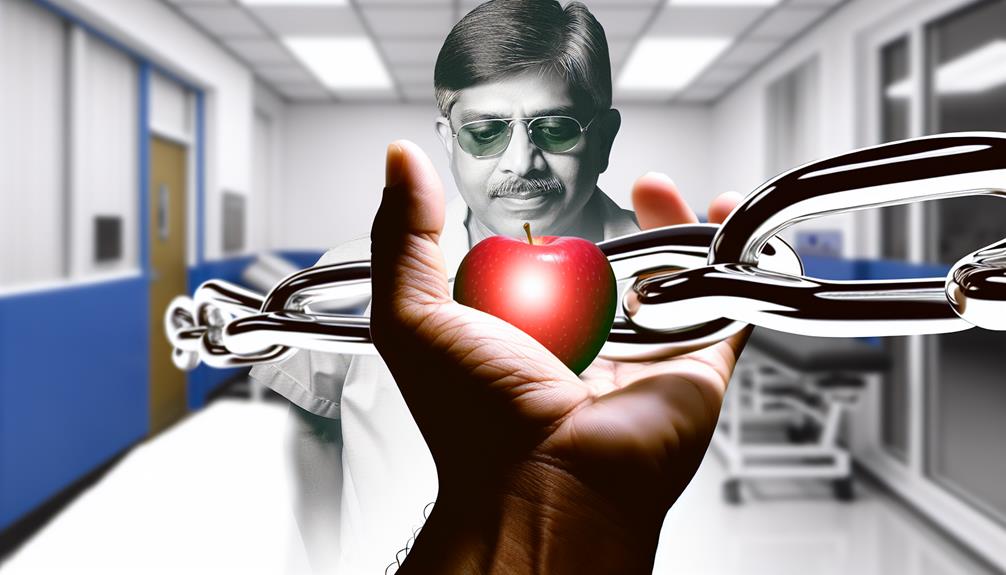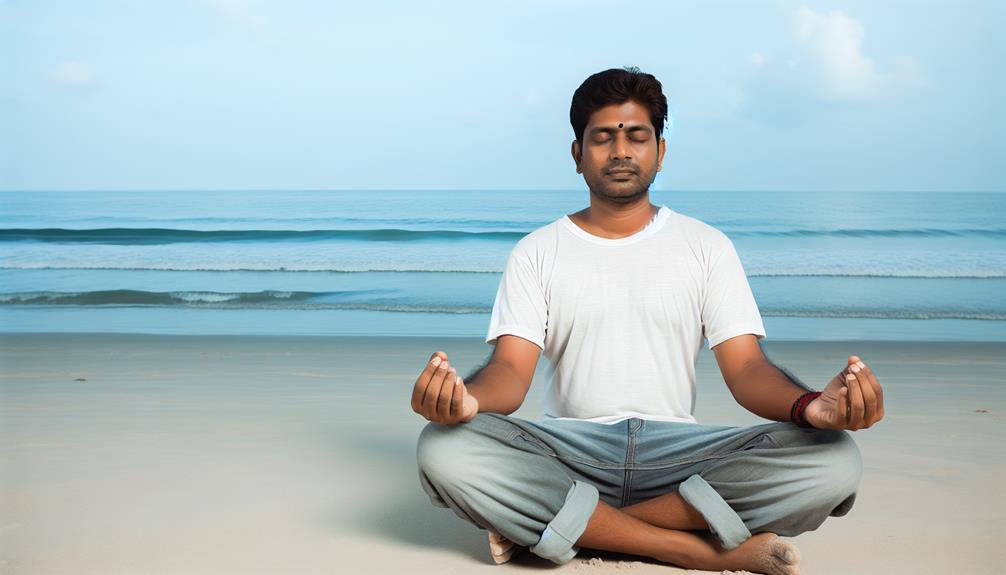In the journey to overcome addiction, the cravings can be like a relentless storm, threatening to wash away your progress.
But fear not, for in this comprehensive guide, you will discover effective techniques to manage those cravings and regain control of your life.
Whether you are currently undergoing PHP drug rehab or simply seeking ways to support your recovery, these tried-and-true methods will empower you to navigate the treacherous waters of addiction.
From understanding the nature of cravings to building a strong support system, this guide will equip you with the tools you need to weather the storm and emerge stronger than ever before.
Understanding Cravings

Understanding cravings is essential in managing and overcoming addiction in PHP drug rehab. It's important to recognize that cravings aren't simply a matter of willpower or a lack thereof. They're a complex interplay of biological, psychological, and environmental factors. By understanding the science behind cravings, you can gain insight into why they occur and develop strategies to effectively manage them.
Cravings are a result of changes in the brain's reward system caused by drug use. When you use drugs, the brain releases dopamine, a neurotransmitter that creates a pleasurable sensation. Over time, the brain's reward system becomes dysregulated, leading to intense cravings when you try to stop using. Understanding this process can help you realize that cravings are a normal part of addiction and not a sign of weakness.
To manage urges effectively, it's important to develop coping skills and strategies. One technique is to distract yourself when cravings arise. Engage in activities that you enjoy or that require concentration, such as reading a book, painting, or practicing mindfulness. Another strategy is to reach out for support. Talk to a trusted friend, family member, or therapist who can provide encouragement and guidance during difficult moments.
Identifying Triggers
To effectively manage and overcome cravings in PHP drug rehab, it's crucial to identify the triggers that contribute to their onset. Identifying triggers is an essential step in the recovery process as it allows you to gain a deeper understanding of the underlying emotions and situations that lead to cravings. By exploring these triggers, you can develop effective strategies to cope with them and prevent relapse.
Triggers can vary from person to person, but common ones include stress, certain people or places, negative emotions, and even specific times of the day. It's important to remember that triggers aren't solely external factors but can also be internal, such as certain thoughts or memories. By becoming aware of these triggers, you can take proactive steps to avoid or manage them.
Exploring the underlying emotions connected to triggers is equally important. Cravings often stem from unaddressed emotions such as sadness, anger, loneliness, or boredom. By identifying and acknowledging these emotions, you can develop healthier ways to cope with them, reducing the likelihood of turning to drugs or alcohol.
Developing Coping Mechanisms

Now that you have identified your triggers and gained a deeper understanding of the emotions and situations that lead to cravings, it's time to develop coping mechanisms that will empower you to effectively manage and overcome them in PHP drug rehab.
Developing coping mechanisms is an essential part of your journey towards recovery, as it allows you to navigate through challenging moments with strength and resilience.
One effective coping mechanism is practicing relaxation techniques. These techniques can help you calm your mind and body, reducing stress and anxiety that often accompany cravings. Deep breathing exercises, meditation, and progressive muscle relaxation are all great relaxation techniques to explore. Find what works best for you and incorporate it into your daily routine.
In addition to relaxation techniques, it's crucial to establish healthy habits that support your recovery. Engaging in regular physical exercise, such as walking or yoga, not only promotes physical well-being but also helps release endorphins, which can improve your mood and reduce cravings. Eating a balanced diet and getting enough sleep are equally important in maintaining a healthy mind and body.
Utilizing Distraction Techniques
One effective way to manage cravings in PHP drug rehab is by utilizing distraction techniques that redirect your focus away from the urge to use drugs.
When cravings arise, it can be challenging to resist the temptation, but by engaging in mindfulness exercises and relaxation techniques, you can effectively divert your attention and regain control over your thoughts and actions.
Mindfulness exercises involve being fully present in the moment and observing your thoughts and feelings without judgment. By practicing mindfulness, you can learn to recognize cravings as passing sensations rather than overwhelming urges. This awareness allows you to distance yourself from the craving and reduces its power over you.
In addition to mindfulness, relaxation techniques can also help alleviate cravings. Deep breathing exercises, progressive muscle relaxation, and guided imagery are all effective methods for promoting relaxation and reducing stress. When you're relaxed, you're better equipped to handle cravings and make healthier choices.
Building a Support System

Building a strong support system is crucial for successful recovery in PHP drug rehab. When you have people who understand and support you, it becomes easier to navigate the challenges of addiction and stay on the path to recovery.
Here are three essential steps to building a support system that will help you in your journey:
- Seeking professional help: A key part of building a support system is seeking professional guidance. Therapists, counselors, and addiction specialists can provide the expertise and guidance you need to overcome addiction. They can help you understand the root causes of your addiction, develop coping strategies, and provide ongoing support and accountability.
- Establishing healthy habits: Surrounding yourself with individuals who prioritize a healthy lifestyle can greatly influence your own habits. Seek out friends and family members who encourage and support your recovery journey. Engage in activities that promote physical and mental well-being, such as exercise, meditation, and hobbies that bring you joy. By establishing healthy habits, you can create a positive and supportive environment that fosters your recovery.
- Joining support groups: Support groups, such as Narcotics Anonymous or SMART Recovery, provide a valuable network of individuals who understand the challenges of addiction. These groups offer a safe space to share your experiences, gain insights from others who've gone through similar struggles, and receive ongoing encouragement and support.

